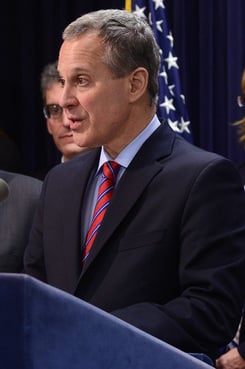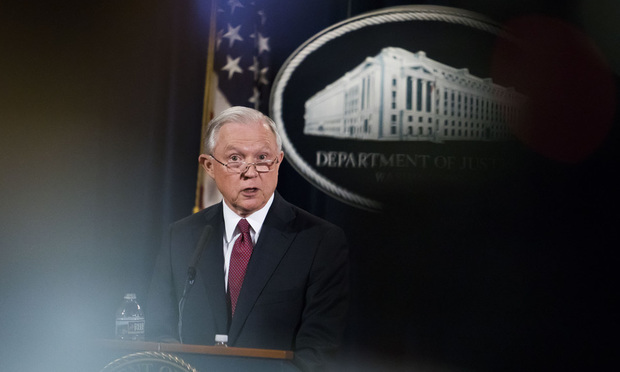Related: 3 Things About the Big ACA Subsidy That Might Vanish Now
Justice Department attorneys on Friday told the D.C. Circuit that the subsidies—covering billions of dollars—had been ended by the U.S. Department of Health and Human Services. The government does not intend to make the next payment, set for Oct. 18. The Justice Department and the U.S. House, which sued over the subsidies, plan to tell the appeals court by Oct. 30 what next steps the sides intend to take.
The Justice Department’s legal opinion was another in a series of actions that the U.S. attorney general recently has taken to reverse Obama Justice Department positions in pending lawsuits.
In the U.S. Supreme Court, the Justice Department changed prior positions in two cases now before the justices: a major labor law challenge in which Main Justice, contrary to the National Labor Relations Board, now supports arbitration agreements that ban workers from bringing class actions; and in a voting rights challenge, the Justice Department now supports Ohio’s controversial program for purging voter registrations.
The Justice Department, inflaming a conflict with the U.S. Equal Opportunity Commission, also has reversed the Obama administration’s position that Title VII protects against discrimination on the basis of sexual orientation. Main Justice’s stance put the department at odds with the EEOC in a pending lawsuit in the U.S. Court of Appeals for the Second Circuit.
The D.C. Circuit had earlier put the health care subsidies dispute on hold, pending any change in approach by the Trump administration. The Justice Department represents HHS in the case, and the U.S. House is represented by an in-house legal team led by former Gibson, Dunn & Crutcher partner Thomas Hungar, now the House general counsel.

House Speaker Paul Ryan reportedly has said the House will withdraw the suit after any termination of the cost-sharing subsidies.
That move is expected to face obstacles. The D.C. Circuit this summer permitted a group of Democratic state attorneys general, including Eric Schneiderman of New York and Javier Becerra of California, to intervene to defend the government’s payments to health insurers.
“So what happens now? Lawsuits, lawsuits, and more lawsuits,” Nicholas Bagley of the University of Michigan School of Law wrote in a post Friday the blog Take Care. “Right out of the gate, I’d put dimes to dollars that that the 16 states that have intervened in the ongoing litigation will seek an immediate injunction from the D.C. Circuit to keep the cost-sharing payments flowing. The states may also file a separate lawsuit in district court seeking the same relief.”



